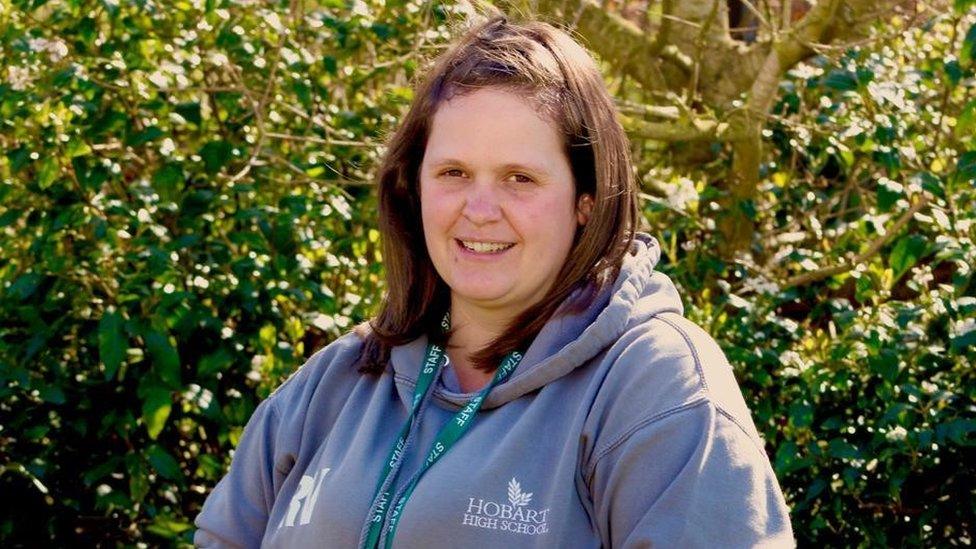Duke of Edinburgh's Award: 'When you get lost, it's a little bit like life'
- Published
A look at the history of the programme as Prince Philip attends the 500th Gold Award presentation
Since its inception in 1956, millions of people have taken part in the Duke of Edinburgh's Award.
The programme, established by Prince Philip, is not a competition but an opportunity for people aged 14 to 24 to set themselves challenges and push personal boundaries.
According to the latest statistics, external, more than 1.3 million young people participated in DofE worldwide in 2018. In the UK almost 500,000 people were taking part as of March 2020, external.
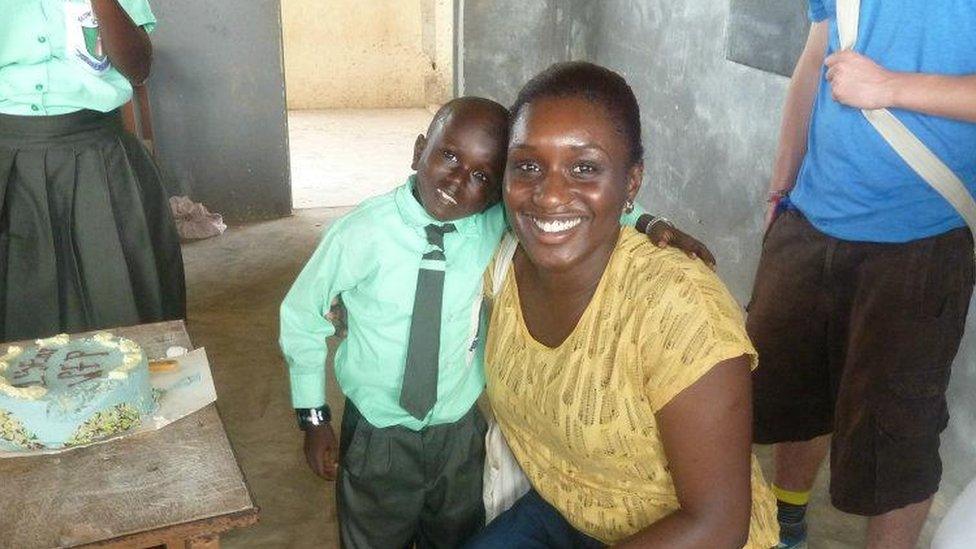
Doyin Sonibare taught at a school in the Gambia as part of her award
Doyin Sonibare says the experience changed her life.
"I didn't realise how much the awards could impact my career until when I left sixth form I decided to not go to university straight away and instead I did a gap-year scheme where I joined IBM.
"At the time about 15,000 people applied but only 30 of us got on to the programme. When I applied, I thought I didn't have enough work experience but then a lot of the questions they would ask me, like work skills or using your initiative, I could think of all the things I had done for the award.
"That's when I thought, 'wow this is actually a really good thing to be a part of'.
"After I worked for IBM for a year I went to university and, during the summer, the head of the graduate apprenticeship scheme sent me an email about their Ignite scheme to help support young people who haven't been in education or training to help get work experience in a company like IBM.
"Because of my experience with the DofE she thought I'd be a good person to help them shape that program, so that was something I was really proud of."
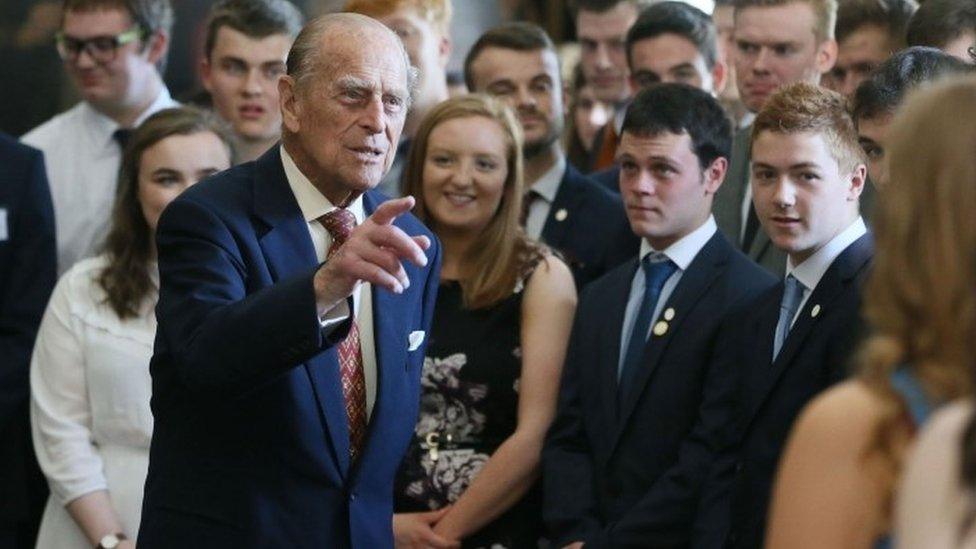
The awards are likely to be judged as Prince Philip's most lasting legacy
The scheme also gave her an experience she will never forget - going to the Gambia.
"The gold DofE has residential aspects, so I went to the Gambia and we did so many cool things there: I taught economics at a secondary school, I was taught how to play the drums and I learnt how to cook Gambian food.
"My family is from Nigeria and with the Gambia being quite close to Nigeria it was nice for me to be around my west African roots, especially because it happened to coincide with my 18th birthday.
"It was just very special for me, I really enjoyed it, and I definitely recommend everyone go there because it's a lovely country. Eighteen is the beginning of adulthood, so for me it was an experience I won't forget."
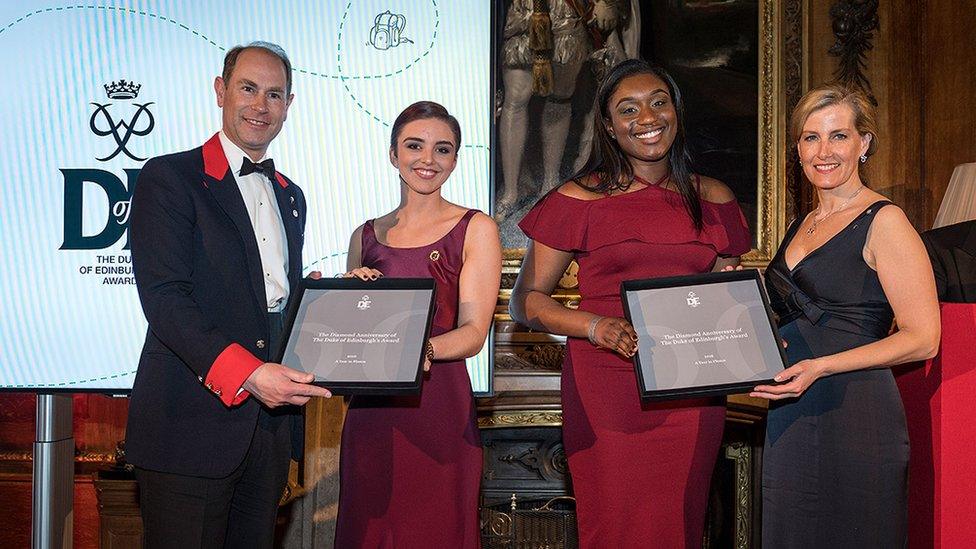
Doyin has met Prince Edward, as well as the Duke of Edinburgh
Although London is a big city, Doyin points out that it doesn't have the kind of open spaces she explored when she went to Wales as part of the DofE Award.
"For me the expedition was really nice, to not only see another side to the UK but to also understand that when you do get lost, it's a little bit like life - you can still redirect yourself back and get where you need to get to; there's not a right way of doing something, as long as you get to your destination."
She adds: "I have met him [Prince Philip] once.
"He was very friendly, very polite, but I kind of wished I could have said 'thank you' because I'll never get that chance again.
"What I've experienced first hand - how DofE helped me for the rest of my life - I never expected.
"I'm only 27 but I've been in places that people from my background wouldn't necessarily find themselves in, so I'm really grateful to him for creating a scheme which allows young people to break barriers."
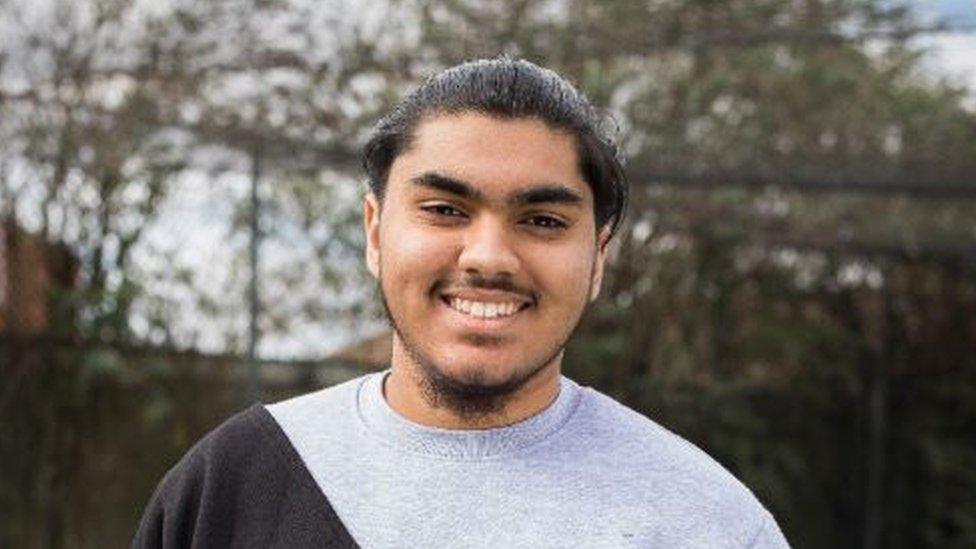
Shehbaaz says the award has taught him invaluable leadership skills
Another young person who credits the DofE Award with changing his circumstances is Shehbaaz, from east London. He has used the award to help set up a charity for people who are in need as a result of the Covid pandemic.
"I think it's amazing, it's flipped my life around completely.
"Lockdown made us nervous and anxious about what the future will hold but with the DofE we had the Zoom calls every week and it was the thing I looked forward to every week. Lockdown was kind of monotonous: doing school lessons every day, sitting at home. You couldn't go out, you couldn't play - there was nothing you could do.
"But having that one Zoom call in the middle of the week where you could just talk, exchange ideas, share thoughts and socialise - it was fun."
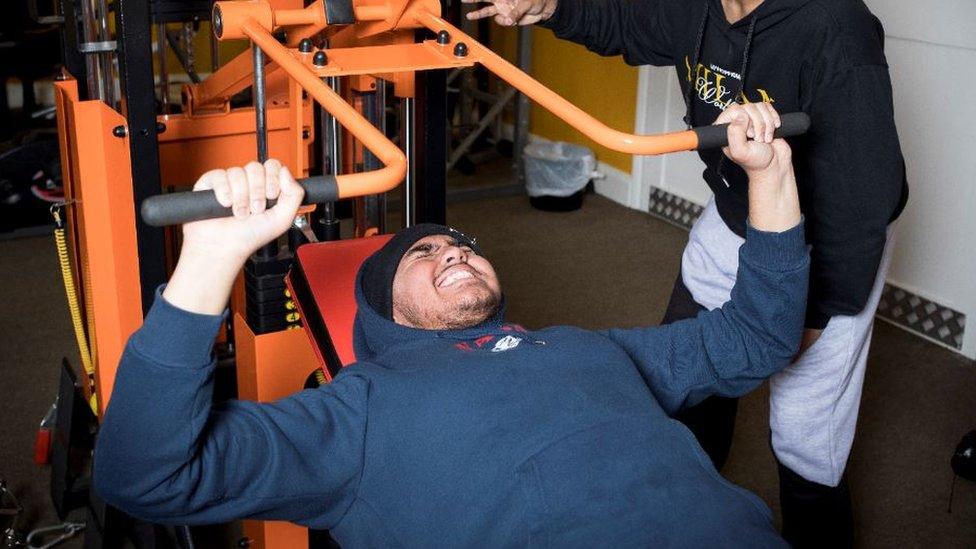
Shehbaaz chose gym work as the physical part of the award
The teenager says that during one of these meetings, he suggested setting up a charity as part of the volunteering element of the DofE Award.
"We then kind of built off from that and we've created this whole charity. We're setting up an online GoFundMe page, we have posters ready so we can promote it online with our friends and on social media. We have teams focusing on different areas, so hopefully by the time the summer comes round we can have enough donations to start helping people in Newham who are struggling because of Covid.
"Essentially, we want to get about £5,000 donated over time and then hopefully use that money to either feed the poor, or if children in education need stationery, or anything like that, we will provide them with it."
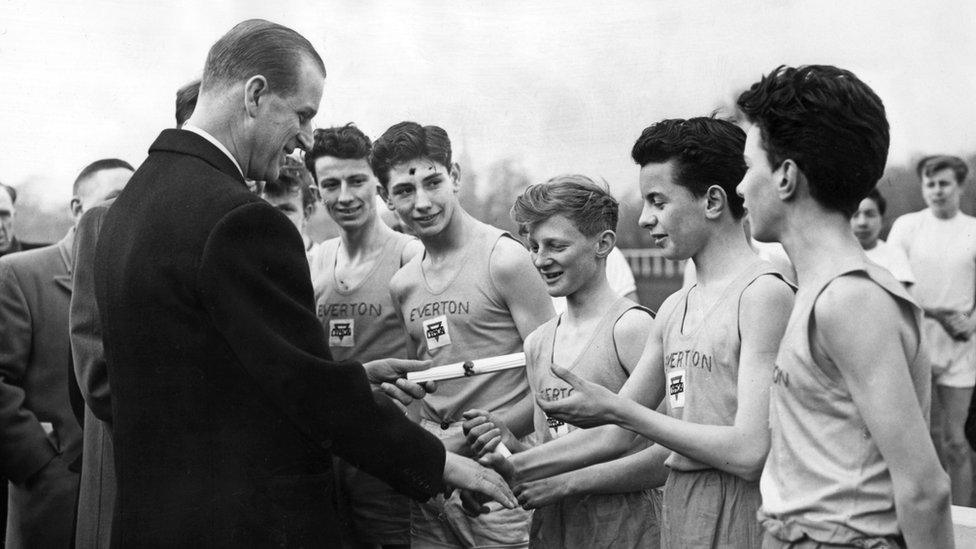
The Duke of Edinburgh set up the award in 1956
Shehbaaz, who was last year made his school's head boy, credits the DofE Award with boosting his leadership and teamwork skills.
"I'd say I'm extremely grateful for the award because it's not only helped me in so many aspects and driven me to be better, like physically and my confidence, but it's also helped so many people in the UK and worldwide and broadened their horizons."
Related topics
- Published9 April 2021
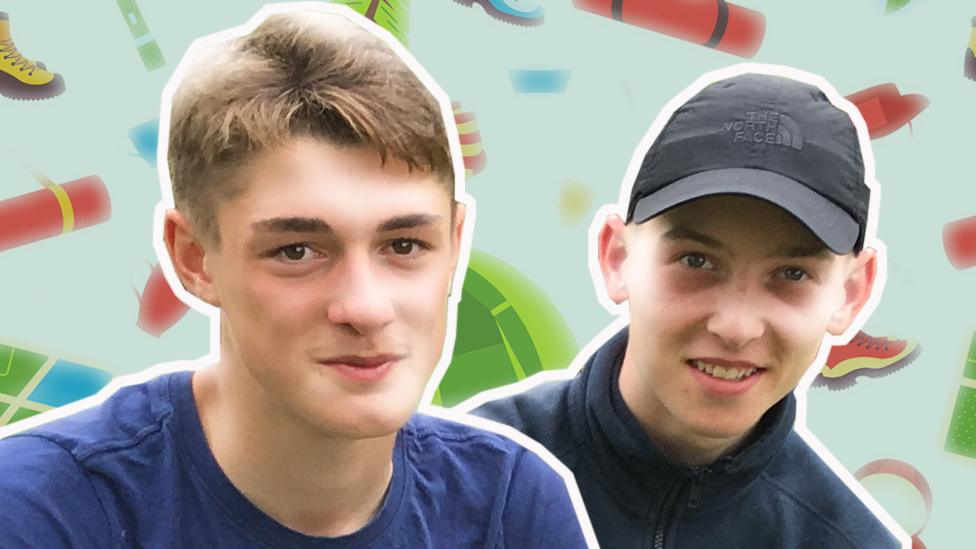
- Published15 April 2021

- Published13 April 2021
